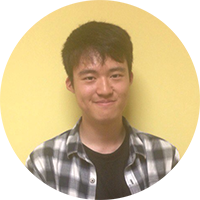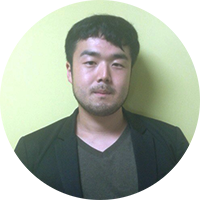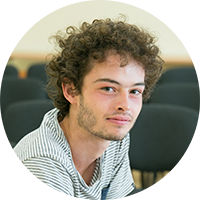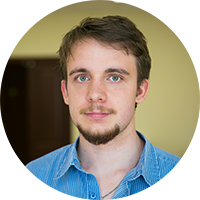Summer University Students Learn Russian
This summer, over 100 international students attended the Summer University at HSE. Of all the courses offered by the programme, Russian as a foreign language is especially popular, with more than 50 students enrolling. Maria Shilankova, RFL teacher, and Oksana Chernenko, Director of the Summer University, spoke with HSE News Service about the educational process and the students’ achievements.
Features of the Russian course
‘An advantage of our Russian as a Foreign Language (RFL) Summer University programme is that we combine academic courses with classes of Russian,’ said Oksana Chernenko, Head of the HSEDepartment for Educational Innovations and Short International Programs. ‘The academic courses include economics and politics, international relations, cultural studies, history, and computer science. Learning Russian helps students understand the country where they study, and the interest in Russian is so huge that it has transformed from a supplementary course to a key one.’
Shilankova noted that the courses are attractive due to opportunity students have to communicate intensively in Russian and to immerse themselves in the university’s atmosphere. Many of the programme participants are students of Russian language and culture in their home countries. Apart from Russian language courses students are also offered excursions, meetings with leading experts in different fields, and a variety of cultural events. Many are also attracted by the opportunity to spend part of the programme at HSE campuses in St. Petersburg and Nizhny Novgorod.
Teaching methods
It is essential for students to understand what their Russian instructor is saying. During the first days in particular, students pay close attention to their lecturers, and evaluation by a native Russian-speaking teacher is very important for them. That’s why it’s very important to maintain an atmosphere of trust and confidence in the group.
Learning Russian helps students understand the country where they study, and the interest in Russian is so huge that it has transformed from a supplementary course to a key one
By the end of the course, people who hardly know each other at first usually become a team – they not only help each other at classes in Moscow, but continue to keep in touch after finishing their studies. Reading interesting texts, talking about yourself and your country, giving presentations and conducting real research in Russian – that’s just a short list of the classroom activities offered by the programme. Regarding the texts offered to students, the strongest of them read Kuprin and Bunin, as well as academic and popular science papers. The programme pays considerable attention to studying Russia’s regions. Students also study classical and contemporary Russian films, such as 'The Blizzard', 'Brother', 'The Stroll', and 'East/West'.
Student profile
Students taking part in the course come from a variety of different backgrounds. Some study Russian for professional reasons, while others study it for fun. That’s why the course aims not only to promote knowledge, but also interest in Russia, its people and culture. ‘All of the groups are international this year. The students represent a number of countries and professions. For example, my group included two doctors, an aviation engineer, an anthropologist, and a manager’, says Shilankova.
The students are very interesting, well-educated and have a huge interest in Russia. The lecturers are thrilled with them
In addition, while students differ in age, they are united by an interest in language learning (many of them speak two or three foreign languages) and a willingness to learn as much about Russia as possible. They are especially interested in learning more about Russia’s regions, its state structure, traditions and holidays. The students include people with deep knowledge about a variety of regions, including Karelia, Komi, Tatarstan, and Yakutia. They are serious specialists who study Russian language and culture for their work or studies. ‘The students are very interesting, well-educated and have a huge interest in Russia. The lecturers are thrilled with them,’ comments Maria Shilankova.
Achievements
The Summer University is an academic programme, which means that students receive grades and rankings. The load is considerable given the high requirements students face. They are prepared for that, however, and are quite responsible when it comes to homework, essay writing, and making presentations. Maria Shilankova adds: ‘I can definitely say that during their studies, students start speaking and understanding Russian much better. They can say that they know the Moscow metro and the city quite well. Most of them highly value the certificates they receive after graduating from the course.’

Chin Yan, Seoul National University, Korea
I’m very interested in Russia, I have always wanted to learn Russian and discover the Russian mentality. This is my first time in Russia, and I think that Moscow is a humanistic city whereas most people have stereotypes about Russia being very dangerous. People are very friendly, and I am having a good time here. The most interesting part of the Summer University programme for me was the Russian language course. The students and the teacher have become very close through various activities and communicating. It was really impressive for me, because you can’t find such things in Korea. Now I feel that my oral language skills have increased, and I can speak more frequently.

Junhyun Lee, Seoul National University, Korea
I didn’t expect that Moscow would be so beautiful; it has so many places to visit! Before coming I had a stereotype that Russian people would be cold and unfriendly to Asians. But I have met so many kind and nice Russians, so it was really great experience here. I chose this programme because I’ve developed an interest in Russian literature, plays and films, and I loved this place so much that I’m thinking of spending a semester here. The most interesting part for me was taking the Russian course, because the teachers were so great. We had no problem communicating with them and they were real professionals; the teaching system at the university was very impressive. Also, thanks to our student bodies, I visited Sergiev Posad and other places, which I liked very much.

Rinke Hindricksen, Erasmus University
I’ve been interested in Russia for about a year now. My girlfriend is Russian and I need it for communication. The language also helps me to know Russian culture better. I first studied Russian language by myself, but I had a feeling that I needed some really good classes, so I decided to go to Moscow. This is my first time here, and I think that Russia is really different from other countries. It is very big! The streets, the flats, supermarkets. And I like it. I feel that this course has been really helpful for me.

Michael Beckers, University of Cologne
This programme is a good opportunity to improve my language skills and to learn more about Russian society. I chose the course about Russian history. I’m also very interested in Russian literature (Dostoyevsky), which is why I decided to learn Russian. Russian is very different from other languages, so it is very interesting for me. The course itself is really well-organized. We read a variety of texts, learn grammar, and I can feel the progress. Even after the lessons I still hear Russian everywhere and have to use it.
Maria P. Shilankova
See also:
‘Everyone Quickly Engaged in Conversations and Demonstrated Their Creative Thinking’
The online Russian Speaking Club opened only a month ago, but has seen a rapid growth in the number of participants. Every week, the club holds free online meetings where participants and a Russian language tutor discuss various topics related to the Russian language and culture. Below, the club leaders share their impressions and plans, which include going offline.
Russian Speaking Club: Practicing the Language and Meeting New Friends
For HSE Preparatory Year students, the Russian Speaking Club is a way to improve their language proficiency in a relaxed atmosphere. At this year’s first such event, they discussed online communications and social media. Michael Dzodzoe from Ghana and Leen Sabbagh from Syria shared their impressions with the HSE News Service.
Summer University 2023: ‘A Good Introduction to Urban Studies’
At the start of August, HSE University held the tenth annual Summer University. This year’s programme took the form of a workshop on urban studies. The participants attended four courses from HSE University faculty and invited experts and worked on their own projects to develop a cultural heritage site. Jung Woo Lee, from South Korea, shares his impressions of the Summer University.
HSE Students Support Phonetics Competition for Chinese Students
The Glinka State Conservatory in Nizhny Novgorod has held a phonetics competition in Russian as a foreign language for Chinese students of the preparatory department. The spectators, jury members, and support team of the competition included HSE University-Nizhny Novgorod students of the Bachelor’s in Foreign Languages and Intercultural Business Communication, Academic Supervisor of the programme Marianna Korenkova, and Chinese language teacher Elena Ammosova. The Chinese students opened the event with performances of famous solo works in Russian.
‘I Made a Lot of Friends and My Speaking Level Improved’
On December 23, students of the HSE Preparatory Year got together for a festive Russian speaking club. They expanded their vocabulary and cultural outlook by immersing themselves in Russian winter holiday traditions and even played the role of Ded Moroz—the Russian Santa.
‘I Have Always Respected the University’s Comprehensiveness and Inclusiveness’
Throughout July, students of the HSE International Summer University are studying Russian History and Behavioural Economics. The courses are taking place in an online format—something that seemed unthinkable for a summer programme before the COVID-19 pandemic. Recent years have shown that online learning is a unique opportunity for students from all over the world to study with leading HSE University professors from the comfort of their own homes.
‘A High Concentration of Intercultural Communications’
The team of the HSE International Preparatory Year said goodbye to its students at a graduation party that took place at the HSE Cultural Centre. 197 students from 58 countries graduated from the programme this year. They learned Russian and profile subjects in Russian, which has helped over 100 of them to enrol in degree programmes at HSE University.
International Students Learn Russian Through Theatre Performance
International students at HSE University acted in and shot a film-play in Russian as part of the ‘Russian through Drama’ course. The students spent a semester preparing the play, immersing themselves in the Russian language and cultural environment. The HSE News Service spoke with the instructors and students about their work on the play and their Russian studies.
Applications Open for HSE University Intensive Summer Language School 2022
This summer, the HSE University Russian Language Centre will offer intermediate and advanced Russian-language students an opportunity to learn and practice their skills while immersing themselves in Moscow life.
Let's Learn to Speak Russian
A growing number of HSE University’s international students are actively learning Russian, even if their degree programme is taught entirely in English. To help them build fluency, the HSE University Preparatory Programme launched a Russian Speaking Club for its students in March 2021. Now, all HSE University's students, regardless of the programme they are in, can take part in the meetings.


